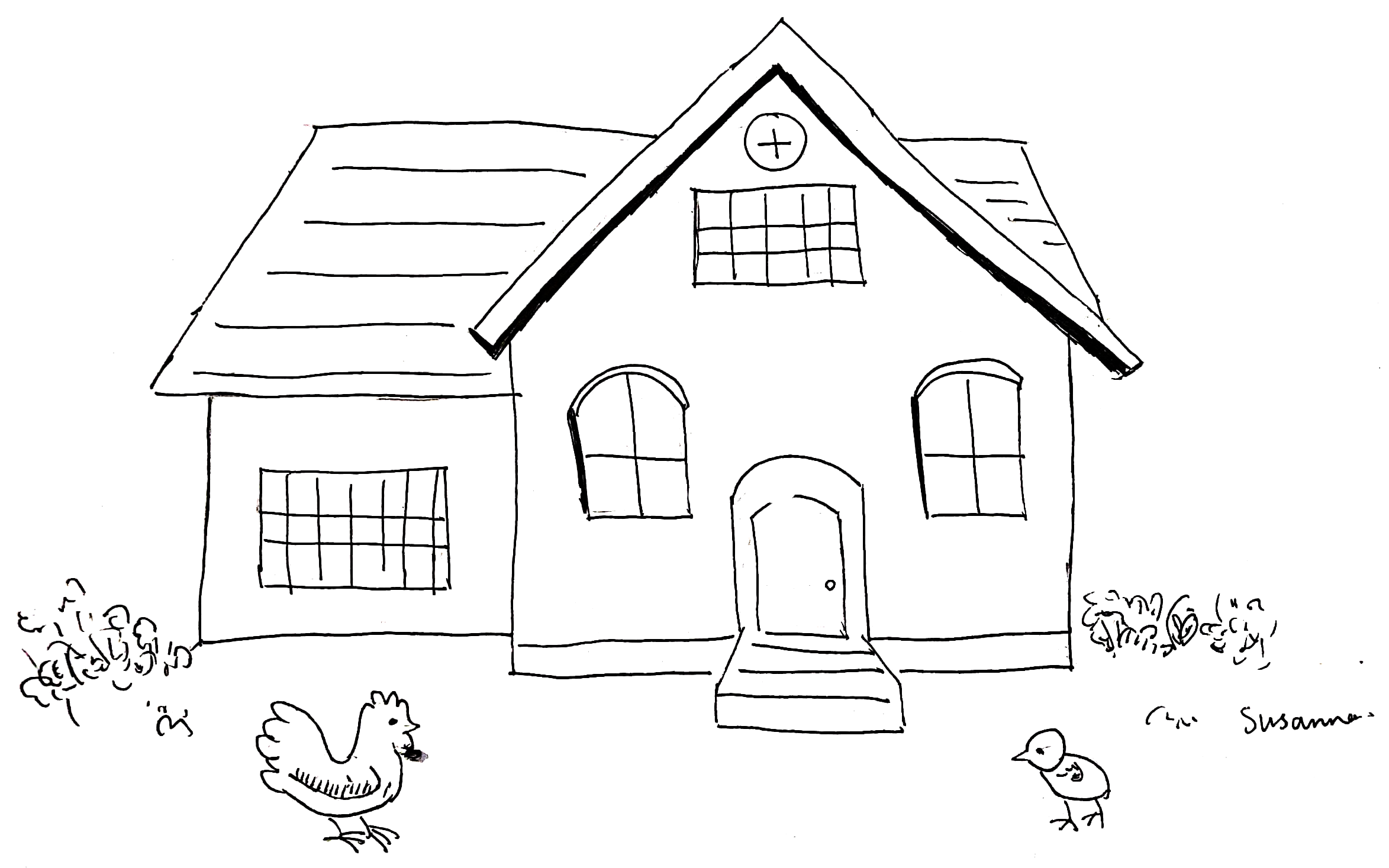
I grew up in a house facing a creek, under the roof of my mother’s childhood home. A 26-kilometer stream ran right through our corner of town and into the Han River, which is why we called it Songchun-li, the road of Songchun creek. It is a place made of distant memories: Mornings spent waking up to the rooster’s crow and evenings spent watching the sun linger.
My world stretched far beyond the banks of the shiftless canal and into the mountainous grove of chestnut trees behind our house. In the fall, I’d climb to the top of the hill, picking wild berries or collecting chestnuts, careful not to stab my fingers on their ripening shells. I would sit on my grandfather’s mounded gravesite, overlooking a canopy gently rolling along with the hills beneath them. The plastic flaps on our rooftop greenhouse fluttered in the distant breeze, brushing past my fingers as I traced the outline of our cottage.
The auburn bricks and cobalt shingles appeared solidly stable then. My imagination darted through the forested footpaths of Songchun-li as the house became my castle. The marble veranda was the deck of my heroic ship, sailing through treacherous waters to salvage shipwrecked survivors — the oblivious coop of brainless chickens didn’t even know I was coming to their rescue! I raced up a flight of Victoria granite stairs to the garden, where I imagined myself at the peak of a mountain, perhaps Mount Hanla on the island of Jeju. From the second story balcony of our wind-grazed house, I reigned over vast fields of corn, sesame, and sweet potatoes: My grandmother’s treasures.
On sticky summer evenings cool enough for a bath, we filled our industrial tubs with boiling water from the kitchen and soaked — me and my two younger sisters — our limbs tangled under the water, steam fogging up the crisp provincial air. Grandma poured warm water over our shoulders, occasionally poking at the tin-foil wrapped sweet potatoes baking on coals in the ground. We’d sit and wait for our snacks to be delivered, or for our hairs to be scrubbed and our backs to be washed. She’d bring three towels from inside the house and wrap us up under the moonlit sky. We huddled like ducklings on newspaper piles to keep our toes from touching the ground.
We biked around our cluttered driveway, weaving through an obstacle course of gardening tools and clay pots stacked against a metal fence. We poked our fingers through the lime-green grid, and then our entire hands, until one of us got stuck and required a three-man operation and a stealthy trip to the kitchen for sesame oil. Halmoni was always there, sweeping the dirt off the concrete terrace or knees deep in homemade tofu. She’d gently clomp down on the bean curd wrapped in cloth, stepping and stepping, until the mush turned firm. She’d slice the mass with a rusty butcher’s knife and plop a piece into each of our mouths — warm and savory clouds. Sometimes we’d walk, along the edge of the creek, careful not to fall into the path of oncoming traffic. We grazed our hands over the waist-height railing, accumulating a film of dust we’d brush off onto each other’s pants.
When I visited Songchun-li for the first time since our move to America, three years had passed. The house seemed much smaller than I remembered, the granite staircase too narrow. The cottage appeared rain-stained and worn from the years it had stood tall for me. I climbed up to the peak of the hill behind the house and lingered at my grandmother’s grave. The two are together now — halmoni and halabuji — under the same grass mound beside the grave sites of their mothers and fathers. Before we left for America, we had planted three little saplings at the foot of the hill: an apricot, an apple, and a peach tree. It was halmoni’s job to look after them until our return. The trees were bearing fruit, green and rather inedible given their young age, but enough for me to pick one off a branch. I lay the peach at the foot of her grave. The breeze rustled by and tickled my neck, calling me back to a simpler place: home.







